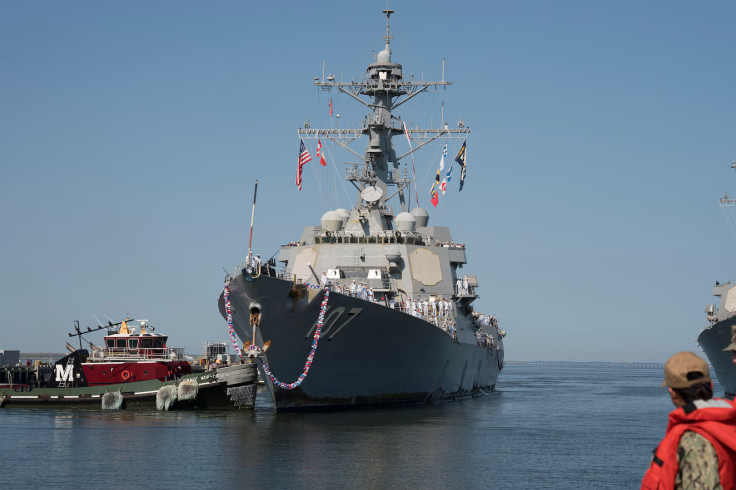
A former senior Pentagon commander says the Trump administration's military buildup in the Caribbean signals a renewed reliance on "gunboat diplomacy" aimed at pressuring Venezuelan President Nicolás Maduro and argues the strategy could succeed.
Speaking to The New York Times in a sprawling report during the weekend, Adm. James G. Stavridis, a former head of the Pentagon's Southern Command, said:
"The massive naval flotilla off the coast of Venezuela and the movement of fifth-generation F-35 fighters to Puerto Rico has little to do with actual drug interdiction — they represent operational overkill. Rather, they are a clear signal to Nicolás Maduro that this administration is growing serious about accomplishing either regime or behavioral change from Caracas. Gunboat diplomacy is back, and it may well work"
The remarks follow three U.S. military strikes this month on boats Washington said were transporting drugs, incidents that have left at least 14 people dead. While the White House and Pentagon describe the deployment as a counter-narcotics and counterterrorism mission, analysts and diplomats told The New York Times the real objective is to tighten pressure on Maduro, whom U.S. officials call illegitimate and accuse of running criminal networks.
President Trump himself denied last Thursday that his administration is planning a "regime change" in Venezuela, even as the United States expands its military presence in the Caribbean.
The administration has deployed eight warships, surveillance planes, submarines, Marines, and F-35 fighters to the region. Officials have refused to specify whether strikes inside Venezuela are under consideration, but analysts cited the presence of Special Operations forces as a possible indicator.
Maduro has condemned the operations as aggression and claimed U.S. actions amount to an effort at regime change. In a letter earlier this month to President Trump, confirmed by Vice President Delcy Rodríguez during the weekend, Maduro urged both countries to "preserve peace with dialogue" and dismissed U.S. accusations of narcotrafficking as "absolutely false."
Despite calls for diplomacy from figures such as U.S. envoy Richard Grenell, who said last week that a negotiated resolution is still possible, U.S. deployments have continued, as regional observers warn that attacks on small boats are being read as "warning shots" and could signal further escalation.
© 2025 Latin Times. All rights reserved. Do not reproduce without permission.






